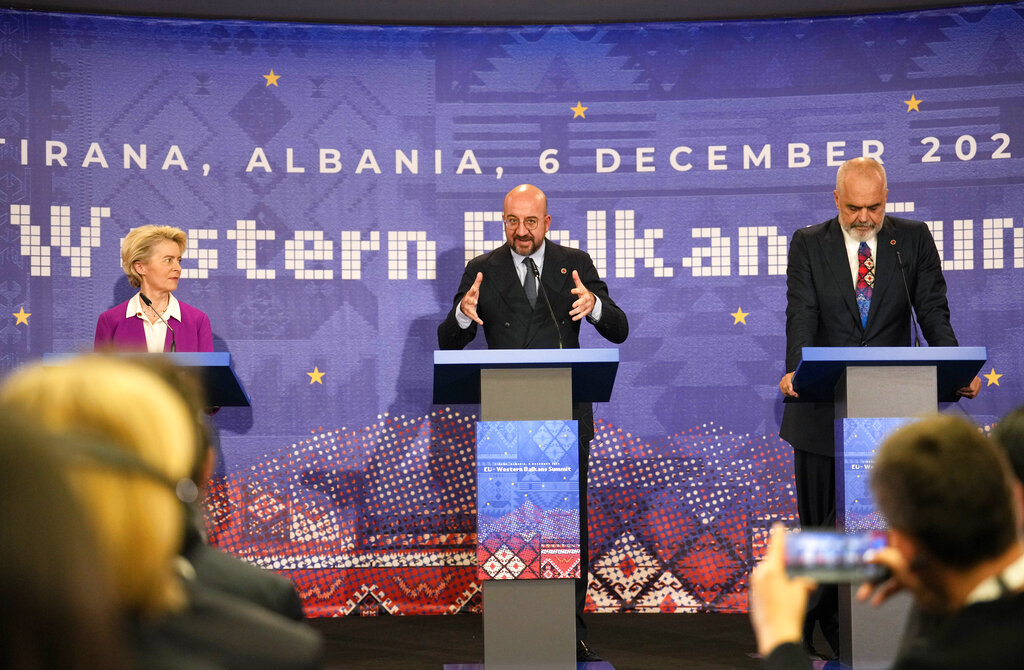It is an open question whether the EU will stop treating the Western Balkans as marginal, a policy that helped Russia and China gain more influence in the region. The fact the EU summit on the Balkans is for the first time taking place outside of the EU in the Albanian capital of Tirana suggests that some lessons may be hitting home at last.
Even relatively recently, it seemed the EU’s elites do not regard the Western Balkans as geopolitically important. The Russian invasion of Ukraine has, however, changed the entire geopolitical context in Europe. It is becoming clear that if Europe ignores such an important region, it will fall under the influence of another power.
European Commission President Ursula von der Leyen made it clear at the Tirana summit that the Western Balkans must decide whether they stand with the EU or with Russia and China. But although she also said that all Western Balkans countries have a chance to join the EU, the situation on the ground in the region is not so clear.
Negotiations are already underway with Montenegro, Albania, North Macedonia, and Serbia, but these are a long way from being complete and there are barriers in the way. Barriers such as the conflict between Serbia and Kosovo and the political crisis in Bosnia and Herzegovina, where the three ethnic groups that make up the state still find it hard to agree on a way forward for their country. The EU has been active in trying to reconcile Serbia and Kosovo, but there is still no agreement.
All analysts agree on one thing. The EU and its main players must stop sabotaging the accession process. It is not a very well kept secret that both Paris and Berlin have had little time for EU enlargement, for a while now.
The hope is that the conflict in Ukraine may have moved the dial on this and that the Western Balkans will get a green light for its long-promised integration with the EU.






